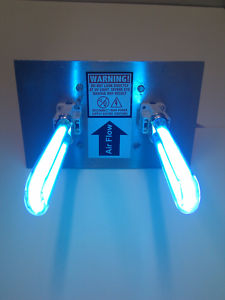This week, a couple named Steve and Cheryl had problems with their A/C unit on Saturday morning. Knowing there’s nothing more uncomfortable than a clammy Saturday, we got out there by mid-afternoon to look at it, hoping to get them back to a comfortable temperature for Labor Day. What we found was a bad blower motor, which we could only get from the manufacturer. To everyone’s chagrin, we would not be able to fix the issue until Tuesday.
Nobody likes to see this happen, especially us at Tropical Air. Luckily, it worked out for Steve and Cheryl – they enjoyed a family stay-cation at a nearby hotel, ran into old friends there, and had a better holiday weekend than they had planned. However, this may not always be the case. We want you to be in as much control of your own comfort as possible, so this week we want you to think about preventive maintenance, particularly before approaching holidays.
While preventive maintenance is not a cure-all, we here at Tropical Air highly recommend it as a way of catching little things that could throw a big wrench in your plans. Here are a few things an extensive protective service could bring to light:
Low refrigerant: Here’s one thing that is always good to watch out for. In the same way you would fill up with gas before a road trip, checking your refrigerant levels before long weekends or holidays is a great way to stay ahead of the game.
Clogged lines: A clogged line is another relatively small issue that could cause a big problem. When your drain line gets clogged to a certain point, it can engage what is called a float switch, shutting your whole system down until the lines are clear. This could cause more than a temporary panic that can easily be avoided.
Dirty filters: We know that it can be hard to remember to change filters every month. That’s why, on a preventive maintenance, we check them for you. If you have a back-up at your house, we’ll even change it for you if need be, and give you a friendly reminder to keep an eye on them to prevent the many problems that can come with dirty filters.
A/C Insight: Running your air conditioner for one year is like running your vehicle for 100,000 miles. Would you operate your car without a service for that many miles? Neither should your air conditioning system be run without a proper service.
This is only a small list of the benefits of an extensive protective service, and those benefits are magnified in the wake of a holiday or event that requires your attention for more important things in your life. If you have a relationship with a trusted air conditioning service company, give them a call. If you happen to be looking for an air conditioning company, give us a call and let us keep you in touch with your comfort.
If you have not had your A/C system maintained or undergone an extensive protective service in the past six months, a small investment today could save you thousands next year.
Keep cool and informed,
Rikki Payne
Your Licensed A/C and Heating Connection
321-972-9935
www.Tropical-Air.com
Serving Greater Central Florida





